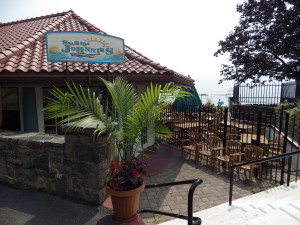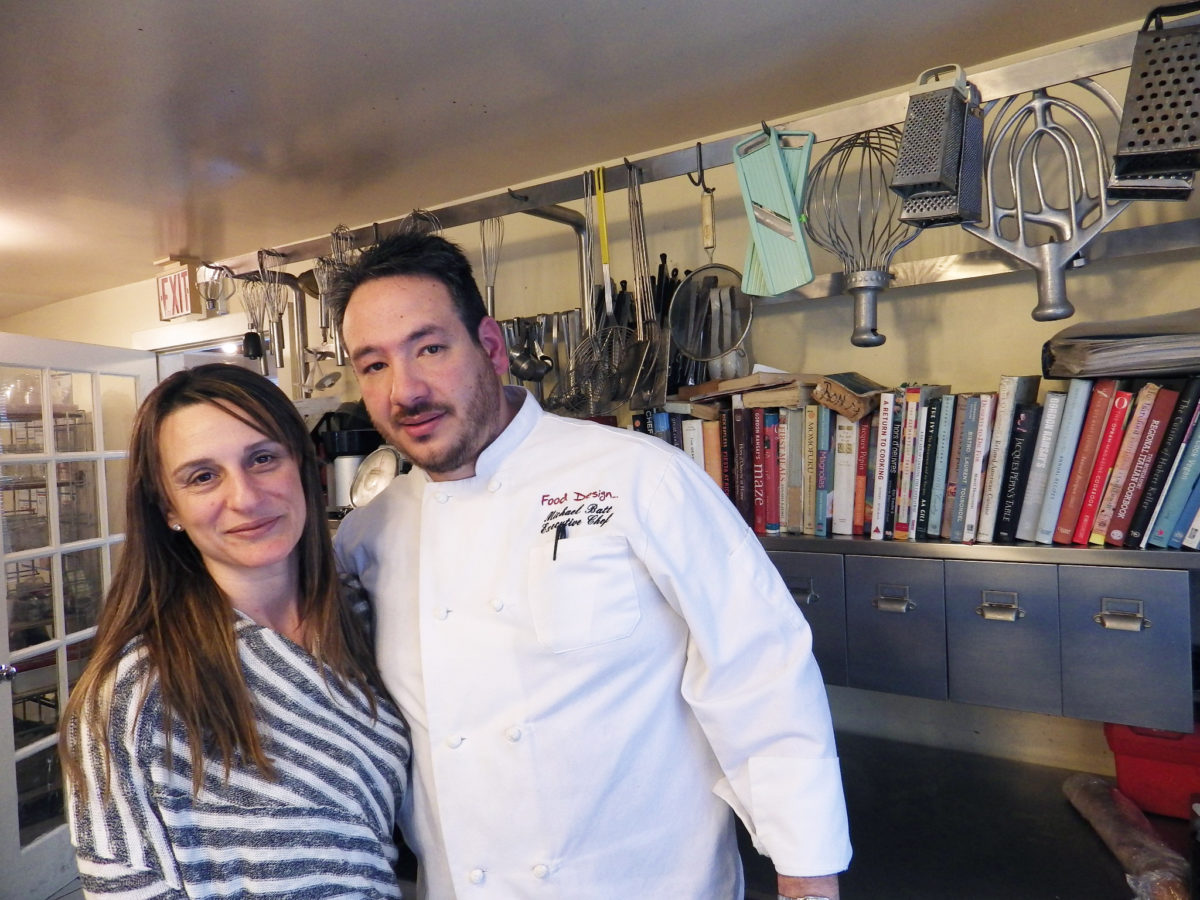Seaside Johnnie”™s is a seasonal restaurant that sits on a perch in Rye Town Park overlooking Oakland Beach. On Wednesdays and Fridays during the summer, under the soft, stuttering light of tiki torches, diners sit outdoors and look up the coastline and over the unlit Long Island Sound to watch the fireworks shot off at Rye Playland.
When the sun is out and the weather warm, the restaurant is a popular destination site but residents near the park, in an affluent coastal section of the city of Rye, have not always welcomed the restaurant and its patrons to the area. That clash has manifested itself in a debate over whether or not to tax the property, which is privately owned but on public land. The debate has pitted Rye vs. Rye, a city and a town with the same name sharing oversight of the park but not seeing eye to eye when it comes to the property”™s taxable status.
The city of Rye is in the process of appealing a ruling that gave tax-exempt status to Seaside Johnnie”™s and the results of that appeal could have far-reaching implications not only for the taxable status of privately owned properties on public land but also on the future of county-owned Playland and city and town-owned Rye Town Park. Both those properties are moving toward private management arrangements that could see more restaurants or other private companies setting up shop on municipally-owned parcels.

The city is heading to the state Supreme Court”™s appellate division looking to overturn a lower court’s June 2013 ruling that said Seaside Johnnie”™s should be taken back off Rye”™s tax rolls since it is on parkland and offers a public use.
Seaside Johnnie”™s lease states that the owners of the property, not the lessee, are responsible for any taxes levied on the property, which like the remainder of the park is jointly owned by the town and the city. If the property is ultimately found to be taxable, the city would in effect be taxing itself.
William Villanova, the deputy supervisor of the town, called the argument bizarre at the Feb. 18 meeting of the town board. “Anything that comes of the lawsuit, the city of Rye has to pay their portion anyway, so that”™s how silly it is,” Villanova said.
The commission that runs the park includes elected officials from the town and city, as well as leaders from the villages of Port Chester and Rye Brook, which are part of the larger Rye Town. The Rye Neck section of the village of Mamaroneck, which is only partially within Rye Town, is also represented on the commission.
The park runs in the red annually and the commission is set to formally request proposals for a private company to manage the park as a method to spark investment in the historical but deteriorating infrastructure, some of which was built when the park opened in 1907. The commission had anticipated the cost of infrastructure repairs in the park to cost around $14 million, but a reluctance by the city to take on debt for capital work led to discussion of seeking proposals.
Villanova said he was concerned that if the appeal were successful, it could scare off potential proposals. “Who in the public would want to come in and bring money into Rye Town Park and then have to pay additional taxes on it? It would ultimately defeat the purpose of doing all this hard work.”
Seaside”™s current lease runs through 2016 and sees the owners paying just under $100,000 a year for the restaurant and to operate two park concession stands. It has also been offering catering services, a fact that the city believes strengthens the argument that the restaurant does not offer a public benefit. The restaurant does not need to share earnings reports, but the commission is involved in menu pricing and even uniform approval as part of the agreement.
Snack bars and concession stands had previously operated on the Seaside site and the parcel was tax exempt until 2011, when City Assessor Noreen Witty cited the for-profit goals of three locations and revoked the tax-exempt statuses of Seaside, the Wainwright House and The Pier Restaurant and Tiki Bar in Playland, which although county owned is within the borders of the city. The Pier Restaurant and Tiki Bar is owned and operated by the same company as Seaside.
The three properties contested those decisions at a special meeting of the city”™s Board of Assessment Review in 2011. The board said the restaurants should be taxed but reinstated the exemption for the Wainwright House, a holistic healing center which drew scrutiny for hosting weddings and other events. After that, in two separate actions, the town and the restaurant owners went to court to get the tax exemptions reinstated.
After the 25-page decision by Supreme Court Judge Bruce Tolbert last June ordered the city to refund $25,000 in taxes plus interest, the city filed a notice of appeal and had six months to file the appeal, which it did on Jan. 23. The town filed a response brief and the city will also file a reply before the court schedules oral arguments for spring or early summer.
Town Attorney Paul Noto was authorized by the park commission to defend the tax exemption in court.
“This has really been harmful to the relationship between the city of Rye and the town of Rye,” Noto said. “And we thought their conduct was inappropriate.” Noto said he was doing the work at a rate discounted from $400 an hour to $250 an hour and for a total amount not to exceed $10,000. He said the city has continued to send tax bills, a matter within their legal right since the case is on appeal.
What happens on appeal can set a precedent to be followed on the Pier Restaurant taxable status and may have broader implications for future restaurants proposed to be built under a tentative agreement with Playland management group Sustainable Playland Inc. The county-owned amusement park also has concession stands run by private companies such as Burger King.
City Mayor Joe Sack verified the appeal. In a previous interview, he told the Business Journal “I totally get that the town of Rye and the county of Westchester don”™t want to pay taxes and they are going to do whatever they can to not pay taxes, but at the end of the day what”™s fair if fair and the law is the law.”



















